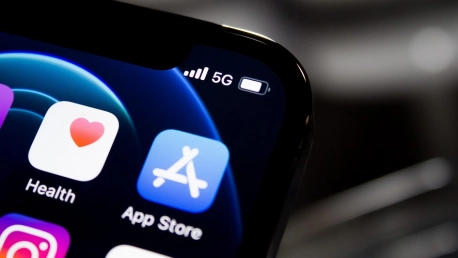Adopting emerging technologies is never an easy task, and it can become even more challenging during a global pandemic. With concerns about new variants of the virus still around, and numerous effects of the healthcare crisis disrupting the global economy, concern is now on the rise in different industries around the world. The telecommunications industry makes no exception, as the 5G rollout in the US and abroad is now expected to come with multiple benefits, but also with new concerns for this sector. Even more distressing may be the fact that new 5G services might also disrupt other industries.
However, as the next generation of mobile networks, 5G networks are also expected to change the world for the better. According to Verizon, 5G services are “the fastest, most robust technologies the world has ever seen.” This means faster downloads, reduced latency, lag and substantial changes for all those who live, work and play in an increasingly more interconnected world. 5G networks come with multiple advantages that are thought to help companies and individuals everywhere become more productive, while also giving people access to more data faster than ever before. From better virtual reality (VR) and augmented reality (AR) platforms to interconnected cars, multiple new technologies and platforms rely on 5G networks to build a better future.
Understanding 5G safety concerns
Both AT&T and Verizon have recently agreed to delay their 5G rollout after worries about possible problems for airplanes have started to appear. The move comes as a change of attitude made by both companies a day after they initially rejected a similar request. Concerns regarding a possible interference with aviation technology have emerged, as Transportation Secretary, Pete Buttigieg, signed a request on behalf of US aviation companies that were concerned about this possibility. The airlines suggested 5G technologies have the potential to interfere with radio altimeters—the tools used to determine aircraft altitude that help pilots land during bad weather.
According to Business Insider, chief executives at both Boeing and Airbus had previously asked Pete Buttigieg to intervene and delay the rollout of 5G services for smartphones in the US. Boeing CEO, Dave Calhoun, and Airbus Americas CEO, Jeffrey Knittel, demanded a deferral of the deployment of AT&T and Verizon’s 5G services that had been planned to take place on January 5. “5G interference could adversely affect the ability of aircraft to safely operate,” the request stated, according to Reuters. Moreover, it may have “an enormous negative impact on the aviation industry,” the letter added.
Key issues for airlines and telecom companies
The global pandemic and the crisis that followed it ended up disrupting most industries across the world, with airline companies being among the most severely affected by the emergency. According to Statista, the number of global passengers decreased drastically, and the aviation industry was severely impacted by the pandemic. Moreover, airline cancellations have increased during the last months of 2021, as aviation employees started to get sick after the new Omicron variant emerged, and bad weather also plagued different parts of the US. Considering all this, it comes as no surprise that US airline companies are struggling to protect their businesses.
However, the aviation industry is not alone in facing the consequences of the global healthcare crisis. Even more, telecom companies like AT&T and Verizon have already made significant investments to roll out 5G services in the US by the start of 2022. Both companies believe that 5G is the next big step for the telecommunication industry and many other sectors of the economy, as this new technology is expected to come with the potential to transform many aspects of the new fully networked economy. Considering the fact that the global healthcare crisis has also changed the way people live, work, and have fun, 5G services are thought to have an impact similar to “the introduction of electricity, automobiles and the Internet,” according to Verizon.
Lessons for the future
No matter how promising the future of 5G is, there is one important lesson that the COVID-19 pandemic taught us—safety comes first. It is probably this lesson that ultimately made both AT&T and Verizon reconsider their initial decision and postpone the rollout of 5G services in the US.









